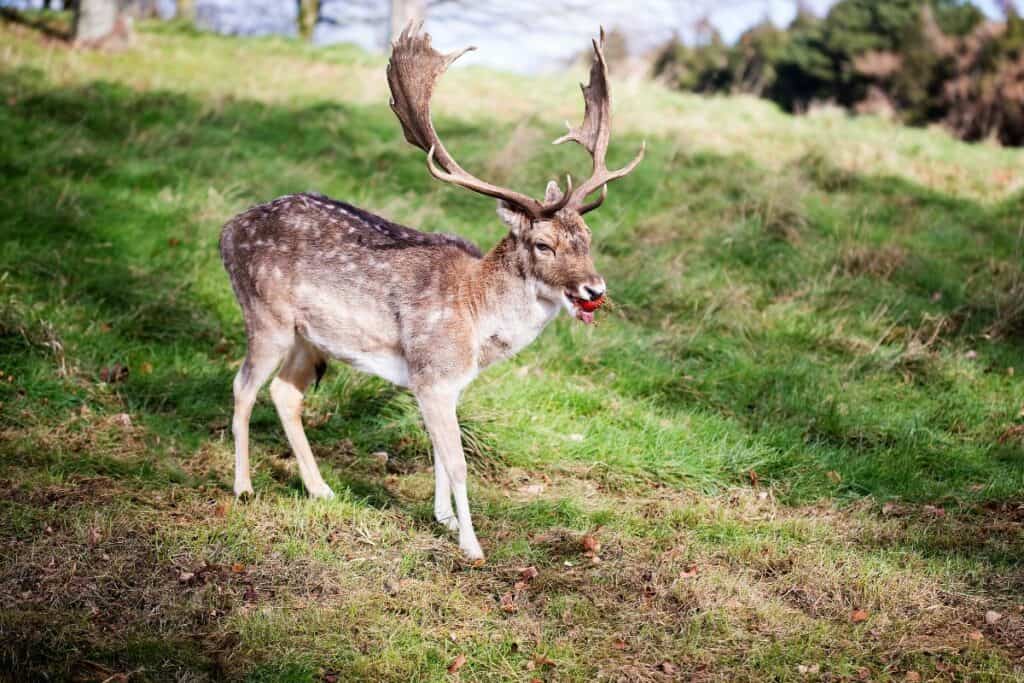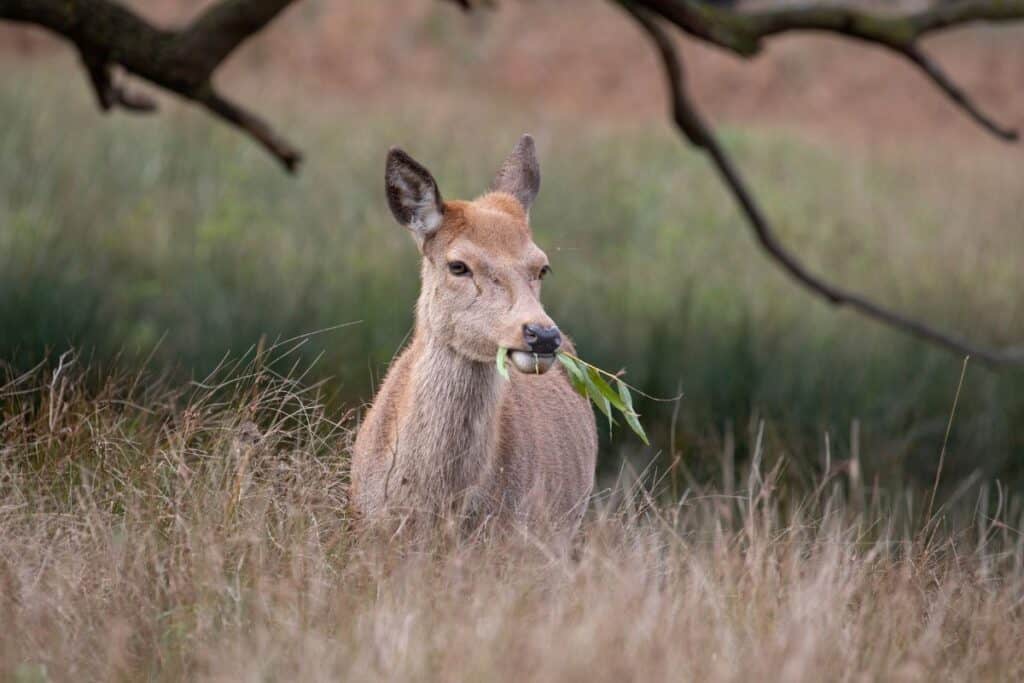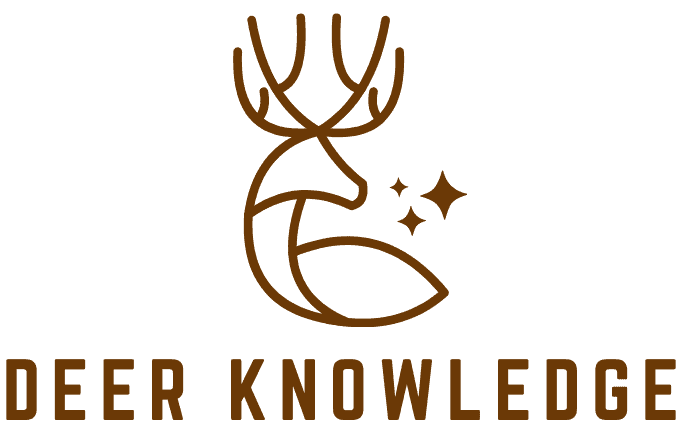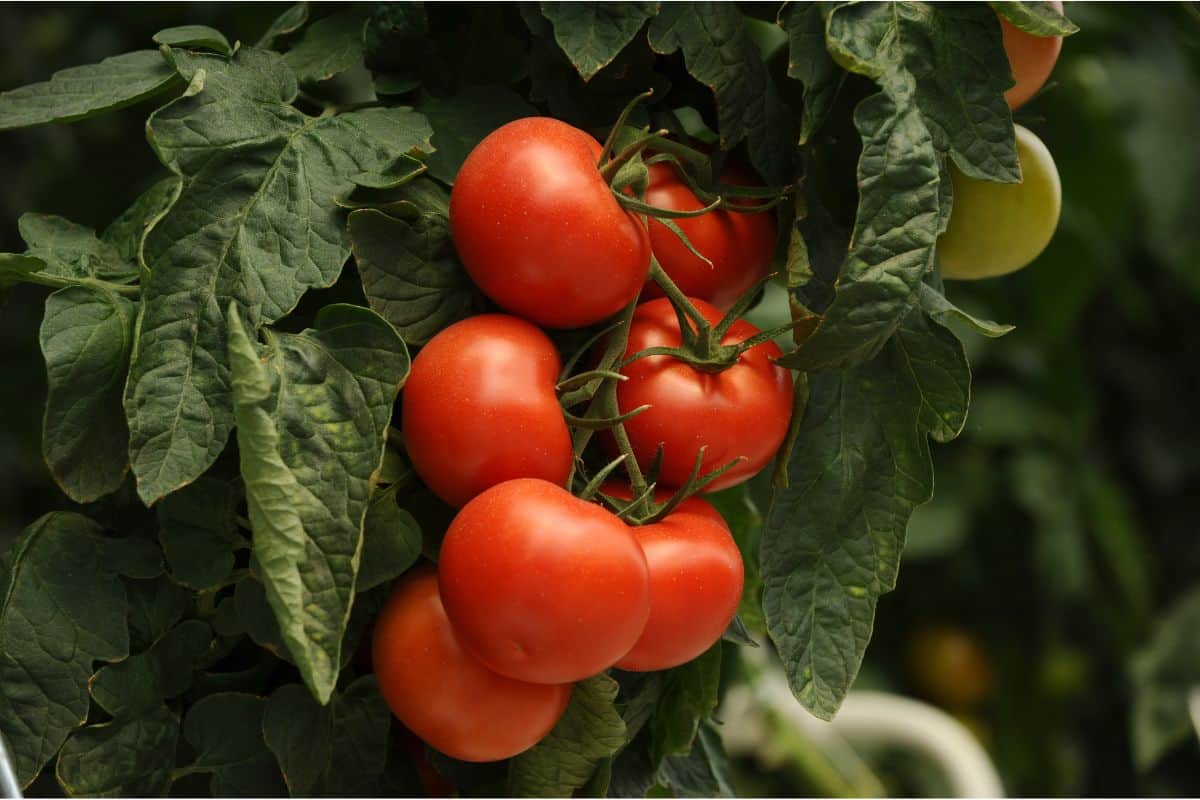Whether you’re a gardener who likes to grow your own vegetables or are interested in the dietary preferences of deer, you might have wondered if deer eat tomatoes or tomato plants.
So, do deer eat tomatoes, or would they rather go elsewhere for their food?
Do Deer Eat Tomatoes?
Yes, deer often eat tomatoes and tomato plants – even though they aren’t one of their favorite foods. They’re not fussy about which part of the plant they eat, often eating the stem, leaves, and fruit (ripe or unripe). They even uproot the plant in some cases.
Gardeners often wake up to damage to their tomato plants inflicted by deer. However, the severity and particular areas of damage can vary based on the hunger and personal preference of the animal in question.
Deer are unscrupulous animals when it comes to grazing and browsing their way across gardens in search of food. So while deer often eat and damage tomato plants, it’s not because they are particularly fond of the fruit. Rather, it’s because they often try to eat anything that might give them energy or a nutritional boost – including garden plants like tomatoes.
In fact, it’s not uncommon to see whole tomato fruits strewn across the ground with a single bite taken out of them – a frustrating sight for gardeners and growers everywhere.

Do Deer Eat Tomatoes Off the Vine?
Yes, plenty of gardeners, farmers, and other growers have reported deer eating tomatoes off the vine – though it is less common than the general damage usually inflicted on tomato plants by hungry deer.
Due to their height advantage over other tomato-eating animals, such as rabbits, raccoons, and other rodents, deer can reach the very top of a tomato vine and begin devouring the whole plant from there.
Remember, deer do not differentiate between ripe and unripe fruit when eating tomatoes – they’ll happily gorge themselves on the fruit (and the rest of the plant) regardless of its stage of development. So don’t think that just because your plants are not yet producing ripe fruit, a deer won’t find them and eat them.
How Can I Tell If a Deer Has Eaten My Tomatoes?
One of the ways to tell if a deer is responsible for the destruction of your tomato plants is to assess the damage. Unlike bird damage (that will be signified by lots of little holes in your fruit), or raccoon damage (bite marks all over the lowest-hanging fruits), deer visits are usually characterized by much more extensive damage.
Deer can demolish entire tomato plants within a few minutes. Worse, even if they are only interested in a few leaves here and there, they will trample their nearby surroundings to get the best “view” of the plant in question.
That’s why deer visits to your garden or tomato growing operation can be so frustrating – they can take very little while leaving behind a lot of destruction in their wake.
Lastly, the obvious calling card of a deer (or several) is hoof prints in the soil or grass surrounding the damaged plants.
Aren’t Tomatoes Toxic to Deer?
Tomatoes can be toxic to deer when consumed in sufficient quantities.
As a member of the Solanaceae family of plants, unripe tomato fruits, stems, and leaves contain the chemical compound solanine, which can be toxic to deer if consumed in large volumes.
However, since tomatoes don’t possess anywhere as much solanine as similar staples of home grower’s diets like potatoes or eggplants, even a large consumption of the fruits is unlikely to have serious adverse effects on the health of the animal in question, barring some indigestion.
It’s one of the reasons deer start feeling inclined to move on to other food sources in your garden after quickly ranging your tomato plants – they’re feeling the effects of the solanine. Still, they often don’t suffer enough from the experience to give up entirely on the endeavor.

How Can I Protect My Tomato Plants from Deer Incursions?
Of course, while these animals can be pretty destructive, there are some measures you can take to prevent their raids on your tomato plants.
When your plants begin to bear fruit, the last thing you want is for these tasty treats to be picked off by hungry animals. So here are some preventive measures you can take to keep your plants safe:
Fencing
Fencing is an effective way to keep deer from eating your plants. They won’t break through the fencing, but they can jump as high as six feet in the air when motivated to do so. Thus, if you’re building one, it will need to be at least eight feet in height to keep deer out – which can seem a little excessive.
Deer Netting
Deer netting is usually a pretty sturdy mesh that can be placed over the tops of your plants to protect them from attack. They have the added benefit of being cheaper than fencing and offering protection against other mammals, such as rabbits.
Scarecrows
Deer do not like the presence of humans (or other animals, for that matter) when browsing around for food sources. So purchasing or building a scarecrow and placing it in the vicinity of your plant can help deter them from your gardens.
Deer Repellent Sprays
Another method to keep deer at bay is deer repellent. Often a pungent odor spray (think rotten eggs) or similar deterrents can be sprayed onto the leaves of plants that act as a deterrent to the animals in question. These can be homemade, but store-bought formulations work just as well and are more convenient.
Motion-Activated Sprinklers
One upper hand you have over deer is that they are easily spooked. That’s why motion-activated sprinklers are such an effective method of keeping them away from your gardens. Once the deer get close enough to the sensor, the noise, water, and sudden movement will scare them away – and likely keep them from returning any time soon.
Ultrasonic Deer Repellents
Another fairly standard deer protection method is ultrasonic devices. They emit a high-pitched frequency that disorients and irritates the animals, causing them to leave the area altogether. There are hundreds of models on the market, so do your research before investing in one, as some aren’t very effective at all.
Companion Planting
A cheaper way to protect your tomato plants is to simply arrange your plants in a way that deters animals such as deer. By planting crops with strong scents that deer are known to hate, such as wild garlic or marigolds around your tomatoes, you can force them to go elsewhere in search of food.
Final Thoughts on Whether Deer Eat Tomatoes
To summarize, yes, deer will eat tomato fruits and other parts of your tomato plants – even though they are potentially toxic to these animals and not a favored food source.
Hallmarks of deer’s visit to your vegetable garden include widespread and messy destruction, with whole plants often vanishing overnight.
But this doesn’t mean you need to give up growing tomatoes in your garden or backyard; it just means you need to take some extra steps to keep them safe. With a little know-how and the proper deterrents in place, you can quite easily keep your tomatoes safe from hungry (and destructive) deer.

